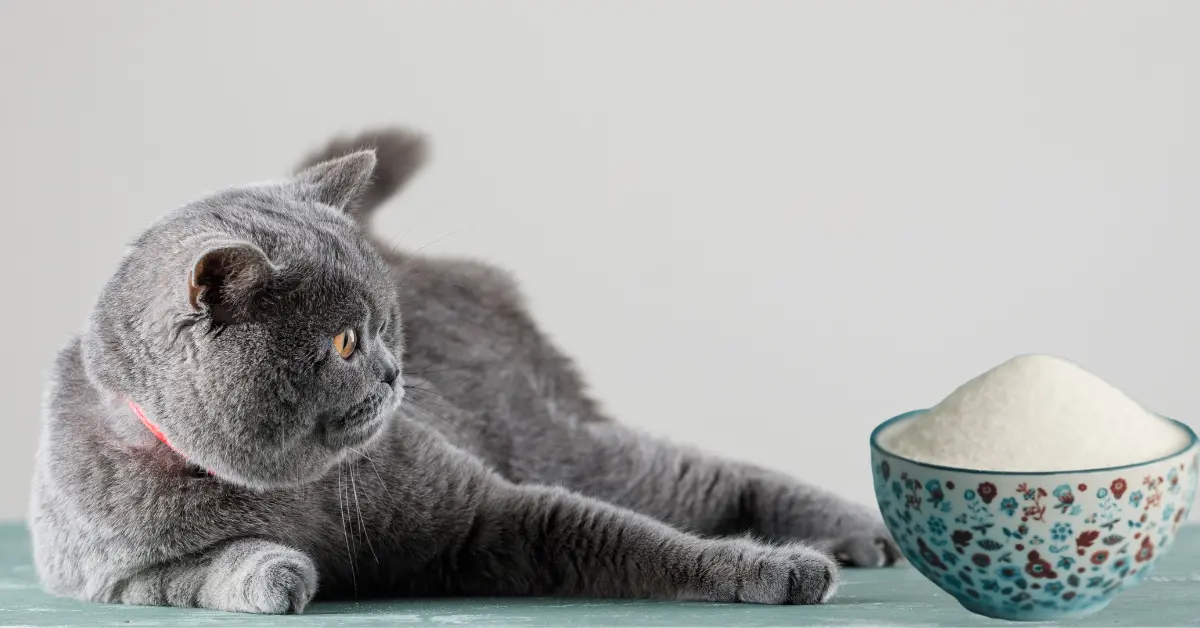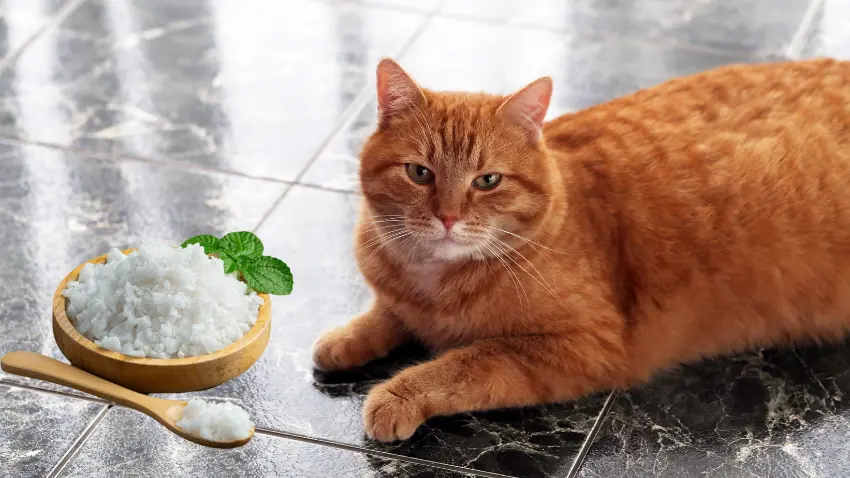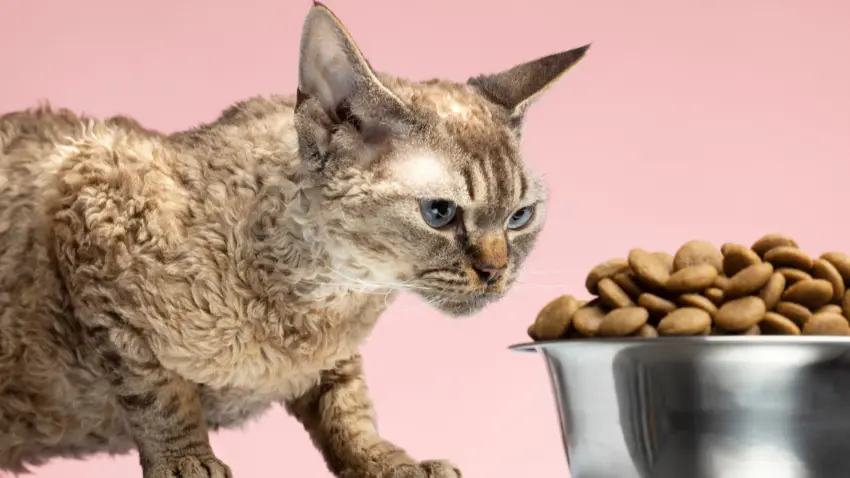Do Cats Like Salt? How Much Should They Consume?
Do cats like salt? Many cats are attracted to salty flavor, being one of the three tastes they can detect. This makes salt a great flavoring to cat food and is a common pair to pepper. However, salt should always be used in moderation to prevent any adverse side effects. Just like with humans, too much salt has repercussions on a cat’s health.
In this post, I will talk about a cat’s salt consumption and how much is safe for them. This is a very important topic because cats can succumb to salt poisoning if they are given large amounts.

Are cats attracted to salt?

Salty food and items are very tempting to cats. They like the flavor, and they will think that anything salty is a food source. This explains why your cat will try to sniff and lick your face after crying or sweating.
Cats’ affinity to salt has something to do with their bodies’ needs. Like most sentient beings, cats need salt to support the functions of their body organs.
Salt helps in the movement of nutrients in a cat’s body cells. It also directs waste products where it should go for proper disposal. Learn here how to dispose cat litter
However, the safety of salt will always vary depending on the amount you’re planning to give. So how much salt do cats need? Experts say that a typical cat only needs 21 mg of salt each day. That’s even less than a quarter of a teaspoon! Nevertheless, bigger cats will require more.
Salt in cat food

You’ll also notice most cat foods have a higher dose of salts. What you need to look for are hidden salts. Remember that anything that says ‘sodium’ is a type of salt and must be accounted for in your cat’s daily consumption.
Always check your cat’s food label, especially if the kitty is experiencing urinary or kidney problems. Aside from cat food, you should also mind the treats you give your cat. Consider low-sodium options if your cat is at risk of kidney problems.
Too much salt is also the reason why you should never give table scraps to your cat. That single strip of bacon may contain more salt than what you know. In the long run, your cat will get more salt than it needs.
What is sodium deficiency in cats?
As much as some cats could consume too much salt, others will experience sodium deficiency. This occurs when a cat doesn’t get to consume enough salts to support its body processes.
Sodium is an essential substance for a living thing’s body. Very low levels can lead to neurological problems among cats.
Although it’s not a typical medical emergency, sodium deficiency must be treated to prevent further symptoms.
For the most part, increasing your cat’s sodium consumption is a good step. However, it’s easy to border to overconsumption if you don’t monitor it well. I suggest asking the help of a veterinarian for proper treatment.
What if my cat is eating enough salts already but still suffers from a deficiency? If your cat is experiencing sodium deficiency (as diagnosed by a vet) despite eating enough salts, further tests are required.
Your cat might be suffering from congestive heart failure, hypothyroidism, kidney failure, nephrotic syndrome, and other health conditions.
Blood tests will usually unravel the reason behind the sodium deficiency as well as the actual sodium level of your cat’s body. From there, the vet will help formulate a diet to augment the gap.
Can salt lamps kill cats?
A few months ago, my wife and I considered getting a salt lamp to redecorate the house. But upon checking with Watson’s vet, we found out that it’s actually unsafe for cats.
We are warned that since cats like salt, they will lick the salt lamp repeatedly. In the process, the kitty will consume large amounts of sodium, without their owners’ knowledge.
A case in New Zealand involved a cat named Ruby, who happened to lick her owner’s Himalayan salt lamp. Maddie Smith, the owner, only knew about it when she saw Ruby walking strangely with her head down.
Upon an emergency trip to the vet, Maddie found out that her cat has high sodium levels in its bloodstream. Brain swelling has set in, and Ruby is experiencing neurological symptoms.
All of these happened because Maddie has a salt lamp at home, which is the only possible source of salt at home.
If you’re thinking of getting a salt lamp, think twice. Even if you’re planning to put it in a secured room, I don’t recommend taking chances. Your cat’s health is at stake, and the last thing you’d like is an emergency trip to the vet.
However, if you already have a salt lamp, you should watch out for the following symptoms of salt poisoning on your cat:
- Diarrhea
- Tremors
- Seizures
- Poor balance while walking
- Lethargy
- Vomiting
- Seizures
- Decreased appetite
If you notice any of these, you should check with the vet for immediate treatment. Salt poisoning can be deadly in a matter of hours, so you must act fast to save your cat’s life.
My cat drank saltwater, what should I do?
If you brought your cat to the beach and drank salt water, you should observe it for the next hours. You should also take your cat away from the water as soon as you see the kitty drinking on it.
The same goes for cats who drank on saltwater pools. Usually, an adequately kept saltwater pool has a salinity level of about 1/10th of actual seawater.
Nevertheless, it’s still a source of excess salt that you have to watch out for.
As much as possible, cover your saltwater pool to prevent your cat’s access to it. You should also keep multiple bowls of freshwater all over your house so your cat won’t resort to the salty pool. Please read here how long can a cat go without water
Is Epsom salt good for cats?
Unlike other salts, Epsom salt isn’t palatable since it has a bitter taste. Most cats won’t like it, but you shouldn’t take chances.
Still, vets recommend the use of Epsom salt topically to cure skin infections. Epsom salt baths for cats will help kill parasites and ease the swelling of wounds. You can also spot-treat with diluted Epsom salt if your cat doesn’t like baths.
But in terms of consumption, Epsom salt isn’t a good option. Even humans don’t find it appealing.
Conclusion
Do cats like salt? Yes, and it’s the same reason why cats are prone to salt poisoning. It’s best to monitor your cat’s sodium consumption and to be proactive when symptoms occur. A proper diet and regular checks with the vet will help combat sodium problems. Most of all, you should remove any excessive source of salt at home that your cat may access.
